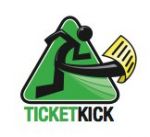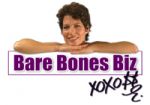Hiring your first employee can be a daunting task for any small business owner. So, to help make that process easier and more effective, the insightful CarolRoth.com contributor network of entrepreneurs and experts have shared their top tips for hiring that important first employee. Their answers are presented below in no particular order.
You may notice some similar insights, but I kept the concepts separate, as something in the way one is framed may resonate differently with you.

1. Hire Another You
That first employee should feel and act like an owner and see the potential in your business.

2. Get a Second Opinion
I've worked with a number of small business owners and I have observed that they are the most prone to radical mood swings and making 180-degree turns based on emotional reactions. This can be disastrous when managing employees. It will kill their confidence in you, and eventually, it will erode their loyalty. The good ones will quit and the bad ones will exploit your weakness.
Pick someone as your adviser or sounding board to consult on any major decisions, especially hiring decisions.

3. Stop Moving the Goal Post
The reason you hired this person is to help you achieve your goals. Make sure you have shared those goals and then have an action plan to support achieving those goals. Also, having written policies and procedures along with a job description and performance appraisal will ensure that the employee understands the expectations and how things are done at your company. Remember, hitting a moving goal post is very hard.

4. Do You Really Need You Jr.?
It's easy to want to hire someone like you, who thinks like you, works like you... When you're overwhelmed with work, stick to what you do best. You'll be able to grow your company by finding others to do what you don't want to do, as well as tasks at which you don't excel. Those people will add value because they don't think like you and don't work like you. But, while hiring for a complementary skill set, ensure that your new employee shares the values on which you've built your brand.

5. First Employee?
My advice would be to find someone who likes themselves. You can tell pretty quickly if a person has a good sense of self-worth, speaks with a smile and above all, cares about others.
If you are able to find someone who is all of these things, then by all means, hire them!

6. Make 'Em Earn Their Pay
The first employee in a small business is often seen as an income drain to a struggling solo business owner. The easy solution for this is to make their first tasks income-generating activities such as scheduling follow up calls from networking events, sending out invitations to sales calls or joint-venture explorations, or getting those late invoices in the mail. When the first employee is an income generator, paying them becomes a very rewarding experience.

7. Not All in the Family
As a business owner with employees, make sure not to hire your family as your first employee. It might seem like a good idea because you know them, but it's usually also a bad idea because you know them. Be very careful hiring family. If done right, it can be a great advantage. But, more often than not, it's harder to deal with a family member who is an employee than someone who is not.

8. Start Small...
Hire someone who grew up in a small town. They usually have strong relationship skills, they're naturally friendly, they're not terribly status-conscious and they've got a great work ethic. There's something about small towns that keeps people connected to "traditional" values, which transcend pure smarts or a posh resume. And if your business is in a large city, the small town person is often trying to establish themselves and will appreciate the opportunity you're offering.

9. Look for an All-rounder
If it's your first employee, you want someone who can be several things rolled into one. He may have to do administrative tasks, marketing, sales and several other tasks. Besides these, you want someone who is flexible, passionate and is willing to learn new things.

10. Choose Trainable Vs Experience
No one knows your business like you do, so you will always have to do some training when you hire a new person. Instead of looking for that person with the perfect amount of experience and knowledge, look for someone with less experience but who shows personality traits like: quick to learn, self starter, enthusiasm and has a history of teaching themselves new skills (even things like guitar, cooking and dancing show they have the traits you are looking for).

11. Hire a Customer!
Your best first hire is a customer. They're already passionate about what you're doing, they know the product/service, and they know what made them buy it! Just be sure they're also ok with putting together IKEA furniture and connecting cables as well.

12. Oh--That First Employee
Hiring a first time employee is different than what you will continue to do as your business grows. What is it that you need done that you can't do? What is it that you should be delegating? What is it that makes more economic sense for someone else to do? That is what your first employee should be able to do. Also, hopefully that employee will be able to train others as they come on board. If so, you will have found a treasure and a true partner.

13. From the "Nuts" Gallery
Herb Kelleher, founder of Southwest Airlines and author of "Nuts," has a wonderful bit of hiring advice, whether it's your first employee or your millionth. "Hire for attitude, train for skill," he says. Small business owners have to find the person whose outlook/attitude/faith matches their own. After all, you can always teach someone how to do the job. You cannot, however, teach someone to be enthusiastic, customer-oriented, or committed.

14. First Employee Small Business
When preparing for the first new employee, there is the 4 step rule. 1. What is the purpose the new employee will fulfill? (Task, responsibilities) 2. What problems are they to solve? 3. What you want from them? (Track record of effective decision making) 4. Where do you want them to be in six months in the business? If you can't answer the four steps with them, keep looking.

15. Hiring Your First Employee
When hiring an employee, one of the first things I recommend is to check their Facebook and Twitter pages to determine if there are any incongruent aspects in their profile, posts or pictures that would not be a good fit in the company. It is always amazing what people say and do on social media sites.

16. Warning
Hiring is easy. Getting rid of is not so easy. I don't know the US Employment Laws, but if they're anything like the UK's, don't put the employee on the permanent staff initially. Hire them on a Self Employed basis. Then, if after a time you need say goodbye, you can without difficulty. Or hire on a temporary basis, the contract with all conditions of employment in your favor to be signed and accepted by the hired before he/she starts.

17. Don't Miss Congeniality
Before hiring your qualified candidate, make sure you are congenial. Being in an office together is like the first months of marriage - without the benefits. It can be a tough adjustment and tense, unless you are simpatico. Insist on a 3 month trial period to see how you work together. Being with an employee who was capable but irritating made me hate going to work in my own office each morning!

18. A Quality Standard Example!
My ONE best tip for hiring the first employee in a small business or any business for that matter is to hire a worker that encompasses the qualities of you and your company. What this does is set a standard for the quality of workers that will be employed at your business. Of course, you cannot expect any employee to have the same exact zeal and passion that you have, but if you can hire someone who, among many other professional qualities, has a heart for your line of work, you have done well!!

19. Check the Chemistry
Hiring a new employee is like dating; you need to like each other. Beyond the basic qualifications for the position, make sure that you like the person (and they you). Ask about their hobbies and interests. Do they have a sense of humor (will they laugh at your jokes)? You're going to spend lots of time with this person, so make sure that you can enjoy them as a person not only as a worker. Once hired, a first employee is like getting married. You need that bond of chemistry so you don't end in divorce!

20. Hire for Attitude
Hire for attitude, teach aptitude. It's a lot harder to do an attitude adjustment than it is to teach skills, especially for small businesses.

21. Make Your Employee Successful
Before you hire your first employee, create a training manual that includes a list of everything that you can think of that you want your employee to do. Provide directions on how to best perform and accomplish each task.
The clearer you can define each task and give instructions, the better an employee can respond to your requests.
New employees want to please and prove themselves. But they are not mind readers, so train them well so they can give you their best.

22. Call it the "Founding Team"
A great way to attract, motivate and inspire your first hires is to tell them that they will be part of the "founding team." This is not as weighty as being a "co-founder" but still carries great bragging rights if the company takes off and becomes a hit. Particularly at start-ups, where the hours are long and the pay often low, such intangible perks can be a huge boost for recruiting and retention. And best of all, it doesn't cost a thing.

23. If You Can't Fire, Don't Hire!
More than twenty years ago, a mentor of mine gave me this piece of advice when I was about to hire my first staff. "If you can't fire them, don't hire them!" Simply put, don't hire people you have emotional attachments with like girlfriends, boyfriends, husbands, wives, nieces, nephews, friends or children of friends, etc. The simple reason is that if it does not work out, it can get messy. Very few people can truly separate business and personal relationships. Someone usually suffers.

24. Picked Needed Skills
When choosing that first employee, choose someone who has skills to lend to your operation that you currently need. This will help you continue to grow your operation and potentially get those tasks off your plate that have kept you from being all you and your company can be. Make sure this first employee understands your expectations of them and give them what they need to succeed. If they succeed in their new role, you can be assured that you and your company will succeed as well.

25. Hiring is Like Dating
Be logical, not emotional. It is extremely important to know what you need. Most of us make the mistake of hiring someone based on an emotional response. We hire friends or family. We hire someone we like vs. someone we need. It is like dating someone. Don't date someone because of whom they might become, date them because of who they are. Hiring is the same. Hire the skills that you need to help you be more successful.

26. Someone You Can Work With
Keep in mind that you will be working closely with this person- just the two of you. So, in addition to the technical/knowledge skills you need, this person should be someone with a personality that you are comfortable with. In fact, depending on the skills you need, their personality may be the most important requirement. Skills can be taught.

27. Are They a Real Person?
Lots of people will try to put on a superficial front for a job interview. I've done the best, while interviewing, when I broke through the surface and tried to really make the person comfortable, to elicit their true self. That's when the real characteristics start to pour out!

28. Attitude
The value of your employee is 10% skills, 10% product knowledge, 80% ATTITUDE. You can teach the skills and knowledge to a person with the right attitude. Look for a good balance of enthusiasm and focus, willingness to do whatever is needed, dependable, respectful, responsible, grateful, and pleasant to be around.

29. The Peter Principle in Hiring
Look for someone hungry to learn, but who is also creative. In this way, they can grow as can your company through them. Don't hire someone like you. If you do this, then your level of incompetence simply gets transferred to them. The key is to stay open, teach, allow mistakes and avoid micromanaging once the person has a sense of what they are doing. It all comes down to conserving and balancing your key resources. The best employer is a mentor, coach, support system, and educator in success.

30. Hiring Your First Employee
From my experience, I found that when hiring an employee for the first time in a small business, it has always been best and safest to first hire on a part-time and short-term project. If the employee works well and fits well within the business, then a permanent position can be opened for that person.

31. Best Employers Interview Tip
Hiring your first employee means going with your "gut feeling" about hiring a potential employee, because a 30 minute interview is not enough.

32. Use the Internet!
When considering hiring your first employee, I would strongly urge you to use the internet to your advantage.
1. Make sure you have all of the paperwork and forms required.
2. Check out the prospective hire. Google their name, check out their social media; it's almost as good as having a background check- if you're comfortable with what you see, then I would continue to the next step. If not, do a background check.
3. Call the references!
Those 3 steps should help you decide.

33. Hire Your Next Star
No, I don't mean "star" as in "Rock Star". I'm talking about hiring people that you want to push into the spotlight and promote independently. Identify someone unlike yourself. I'm a 43 year old crotchety old-school male marketer... I hired a young female graduate from a regional university. She will be the star of the company, gathering experience from me and combining it with her incredible talent and youthful fearlessness. She is what I am not - and the company is better for it!

34. Why Hire?
The employer should not give the impression that he/she is doing the employee a favor, nor that he/she is anxious to have their services. Any employee should be considered a "partner" of management - they are working towards the same ends - and the employer should stress that the new person is being taken on board because work for them has become available because the company is growing. The new employee should be told that he/she will help with the growth and will become part of it.

35. Ask Birth Order
Ask your candidate whether they're first born (more likely to be a Type A overachiever and people-pleaser), middle born (more likely to be the negotiator between opposing sides) or last born (more likely to be a Type B, rebellious, creative, think outside of the lines type).

36. Write a Job Description
The first time I brought someone new into my small business, I failed to make clear that I was bringing them on in the role of employee, rather than as a partner. There were some specific tasks and duties that I had in mind for this new addition, but editorial control and expenditure of resources were not among them.
If you hire someone to work for you, have a written job description and detailed compensation package for them to read and agree to as conditions of employment.

37. Hire an Octopus!
Hire an octopus. There's no true job description for the first employee at a small/entrepreneurial business. Therefore, don't focus on specific skills. Find someone with a good attitude who's willing to do things they've never done before and keep lots of balls in the air.

38. Find Someone Smart with Heart
When hiring an employee, you'll of course seek someone who is sharp and has the requisite skills, but also take into account the employee's character. Smart is not enough.
You want someone who will work with heart, someone who will care almost as much as you do about your customers and doing things right. Hire an employee who thinks like an owner to fast-track your organization's success.

39. Hire the Smile-Train the Skill
Whether it is your first or last employee, you are hiring an ambassador for your organization. Hiring is not about getting a warm body to do a job, it needs to be strategic. My top tip is simple: “Hire the smile and train the skill.”
Companies, regardless of their industry, are in the relationship business. 74% of HR professionals today say that people with emotional intelligence, which is people who are great at building relationships, are their top hiring priority.

40. Let's Do Lunch!
Take your potential employee to lunch to a sit down restaurant.
Here's what you have to look out for:
* Are they on time? This shows respect of your time & that they can keep a deadline.
* Do they have manners? No manners = sloppy work.
* How do they treat the staff? The staff represents your clients.
* Is this person easy to talk to? You will be working closely together, so you must like each other.
* Do they order off of the menu? Requesting many changes to a menu item may be a sign of high maintenance.

41. To Employ or Not to Employ...
As a small business, it is very easy to have your first employee be a friend or family member. My one word of advice for you would be NO! You love them to death, but they feel they deserve certain benefits because of the relationship and you don't handle them as an employee because of the relationship. Avoid all of the muss and fuss and hire someone who has a great resume and work ethic and set your rules and guidelines on the first day. Everyone will be happier in the long run!

42. Knowing is Believing
Finding the right person to hire is a very important task for any business. However, when it comes to small businesses, one great tip for hiring employees is to find out their knowledge about your business. Make sure your employee understands your business mission to grow to great success, and has the knowledge and experience to make your business thrive.
Thanks to: Faithe Rogers.

43. Have a Discussion About Styles
You are a Type A personality for whom everything is urgent and downtime is a four-letter word. Will you work effectively with someone who is laid-back and easygoing? Maybe. Maybe not. Regardless, it's far better to have that conversation before bringing a new person on board. This has less to do with work ethic and commitment (which hopefully is a given) and everything to do with personal style, i.e. how the work gets done. So, be sure to ask about the candidate's style in the interview.

44. Hire the Right Person-ality!
Particularly in a small business, you will need someone who will handle several different tasks. It is important to make a list of all job responsibilities ahead of time and then administer a personality assessment to your top candidates to make sure that they don't just interview well, but can actually do the job! Assessments are a great way to have non-biased insights into potential employees and are less expensive than hiring the wrong person, training them, and then firing them! Be proactive!

45. Find Your Own Replacement
Business owners and entrepreneurs often times wear all of the hats within the company. Initially, they may be required to fill every important position such as web developer, accountant, sales manager, and problem fixer. When considering hiring for the first time, business owners should take into account what takes up most of their time on a daily basis and what they can hire someone else to do for them, freeing them up for "big picture" tasks like networking, goal setting, and expansion.

46. Hands-On Introduction
Aside from having a basic employee agreement in place before they start working, make sure your new hire understands what their role will be. This may sound simplistic, but when you invest the time early on, it can reduce turnover while boosting confidence, motivation, and productivity.

47. Interview For What is NOT Said
Be clear about the attitudes you expect your new team member to bring to the job. Interview for the story behind the story. If I sense uncertainty or a glib answer, I ask 3 - 5 more questions on the same topic to see if the person really knows their stuff or if they've just read a few blogs or watched their boss do it. I ask for examples to see how they have applied what they say they know. Did they do the work or were they part of the team? What was their real role? I check references in detail!

48. Hire to Make Money
Make sure you’re doing enough business to cover the expense of that first hire which may include hiring someone who will help make you money, for example a salesperson.
Another recommendation is to hire an intern or recent college grad by listing an ad on college websites' career centers. Create a free online account and then post positions for free as well.

49. One Key that Can't be Ignored
No matter how many people are on your team - if it’s just three of you or 50 of you-there is one key to hiring that is an absolute and can never be ignored. When dealing with people, and team members are people, it’s hard to deal in absolutes, but it’s absolutely critical. Sometimes people defy the rules or the expectations, but this one is a definite. The key is hiring 100 percent of the time based on integrity.

50. Check Out Their Temperament
You need to get along with this important new hire, so your bias will be towards hiring someone -- just like you! However, you may actually need someone with a very different temperament to provide a unique, yet complementary, perspective. Your interview should include questions about "what makes them tick" and "what ticks them off." The effort you put into pre-hiring will pay off after they are on board.

51. Test Drive Before You "Buy"!
Looking to hire? No time to screen resumes or conduct interviews? And what if it doesn't work out? Instead of taking that risk, use a good temp agency to find potential candidates. Then, test drive the best they have to offer. If they send someone who isn't working out, just call and say "next!" And if you decide to hire, you have a proven candidate! Plus with a temp agency, you don't have to worry about payroll laws, reporting or taxes because until you hire, they are responsible for all of that!

52. Hiring the First One
Given the fact that the company is small and a start-up, I would want someone young who can grow with the company. I'd be looking for someone who is motivated, has common sense, is bright, and can think on his or her feet and adapt quickly. The company is starting out and it needs its first few employees to grow their experience as the company grows. That is how I would deal with this and what I would be looking for in the first employee.

53. The Pre-Interview is Key
Create an exhaustive pre-interview process (4+ hours long) where you include a hearty sampling of relevant day-to-day tasks. For us, this served to weed out all less-than-stellar applicants. After sorting through 100 initial applications, our new Associate Director stood out clearly and we ended up hiring the first person we met!

54. Take Ownership
Any good business plan begins with an outline that directs steady growth. Define your mission. Clarify your vision and execute your plan with optimism. Your first employee will be an essential partner on this journey. Encourage buy-in and make them feel invested in your adventure. Allow them to take ownership of the process and to celebrate successes.

55. Don't Hire for Today
Your first employees have the potential to define your company. In fact, a company's first employees often become its executives or leaders. Hiring only for today’s needs can stunt a company's potential or be its undoing. Instead, hire with intent, foresight and determination. Look ahead. Dare to dream. What key values do you want for your company? What characteristics should your employees possess? Dare to “hire up” rather than hiring for a limited scope, and then watch your company blossom.

56. Steal
Steal the best employee you can find from another similar business. Whenever you need a certain position filled at your business, check with the people you've come to know and trust at other establishments. Ask them what it would cost for them to jump ship and work for you. Even if they want more than what you want to pay, it's always worth it. You already know they do the job well, you don't need to train them, and you eliminate a more costly proposition - when you have to fire an employee.

57. Stick to the Wall
Our company consists of professionals - writers, editors, and artists. We do have a job requiring less exacting skills, namely shipping. However, we will not accept anyone who has not completed high school or obtained a GED. Why? We want someone who knows what it means to stick with a project and complete it. In today's job market, there is a lot of competition, so we can be selective. A shipping error can be costly.

58. Is it Worth it
The temptation to go from a solo practitioner to having employees is huge. It can be indicative of success. You need to question if it is worth it. The person's employment should make you a profit equivalent to their cost. In other words, if salary and benefits together to have the employee cost you $75,000, you should be bringing in at least $150,000 as a result of either the person taking care of mundane tasks to free you up or bringing in additional business.

59. The Pick-up Technique
When I had my Chiropractic practice, I had difficulty finding competent employees. One technique I used to weed out applicants was to crumple a piece of paper and toss it on the floor at the entrance of the area where the interview was to take place. If the applicant bent down and picked up the paper, I would continue the interview (observant and eager to do extra work). If they stepped over the paper, I would then end the interview (not observant and not willing to do extra work).
Thanks to: Dr. Robin Huhn.

60. Cutting Edge Tool Tip
Poor job skills don't cause most terminations, personality problems do. Companies have applicants' handwriting analyzed to help make the best match to the job and to recognize red flags before bad behavior creates expensive problems. Handwriting is still relevant. It reveals who you are: your thinking style, social style, energy level, organization, reliability, ego needs, etc. Handwriting analysis is a cutting edge tool that can help you create a more cohesive team and save money.

61. Hire Part Time
Hire part time. Hire quarter time or a few hours a week. You may think the work you are not getting to is a LOT; however, your newly hired team member may do it much better and faster than you. It’s hard to keep a full timer busy! Also, if you want to add responsibilities and hours, do it after they have handled their first assignments. Make sure they are working out. And, later on, you may get push-back. They will fill their time, like molecules in a vacuum, they spread the tasks out.

62. Hire Slowly; Fire Quickly
Hire slowly and fire quickly. Find the candidate who BEST meets the expectations of the JOB, ENVIRONMENT and BUSINESS OWNER. The first hire must have the knowledge, skills and abilities to do the work, and possess passion for the organization. Don't travel the hiring terrain alone. Have others interview. And check REFERENCES. (Shh, people fib, don't tell anybody.) Remember, if it's not a fit, it's not a fit. The sooner you cut ties with the wrong person, the sooner you can find the BEST person.

63. Slow Down, Hire Only the Best
Resist the urge to find someone fast. Slow down, way down. Do not settle for anyone less than great. Have them spend an entire day on the job as part of the hiring process. In those eight hours, you will learn what it will be like to work with them. Hire character and integrity, and develop the skills and talent. Trust your intuition. Spend lots of time ensuring that you have the perfect person for the job. That will be more productive than interviewing and rehiring every few months.

64. Transform Your Kryptonite
We entrepreneurs are high-skill, high-energy people who think we can leap tall start-ups in a single bound, stop run-away operations on a dime, and be faster than speeding cash flow problems. But we all have our kryptonite situations. Sure, you're good. You may be great. But discover the one thing you find less success doing, or just don't like, and hire the best person on your planet to do it. Who knows? You might even stop changing work hats in a phone booth!
Do you know another hiring tip that wasn’t included? If you do, please share it below. And as always, many thanks to everyone that contributed to this article!

































































